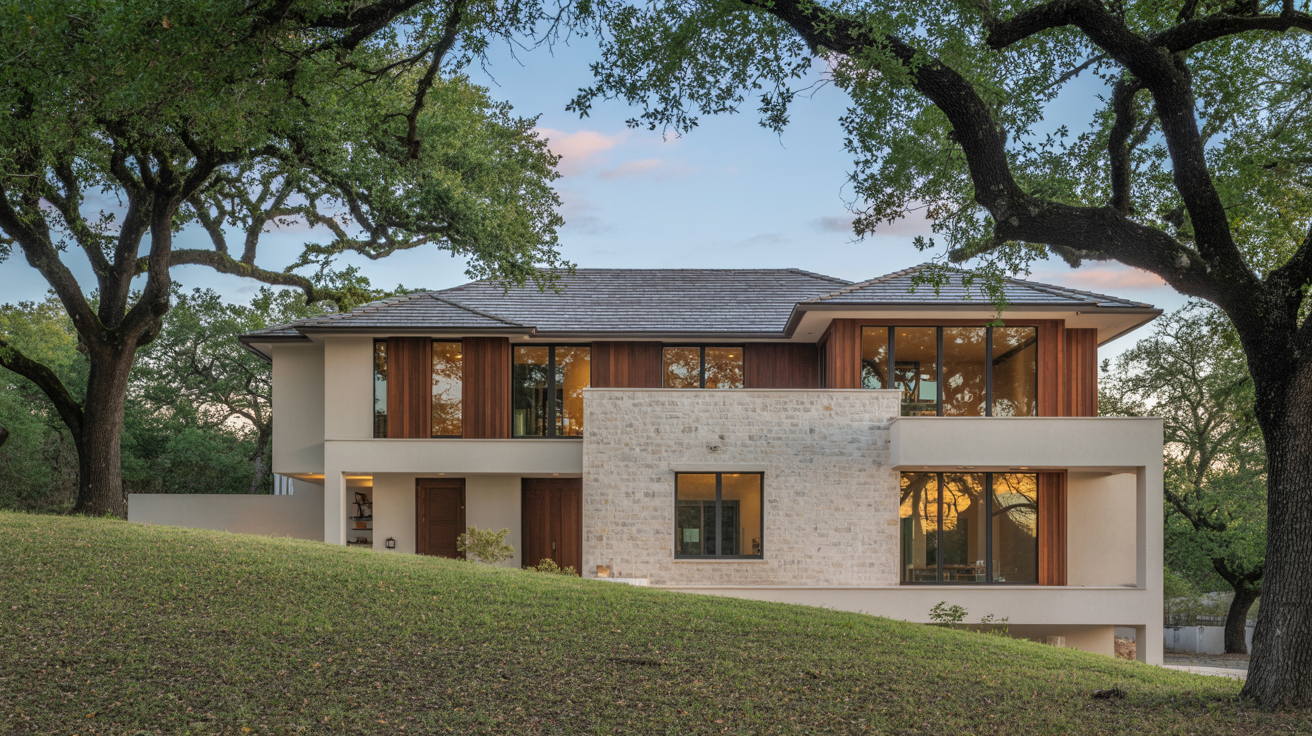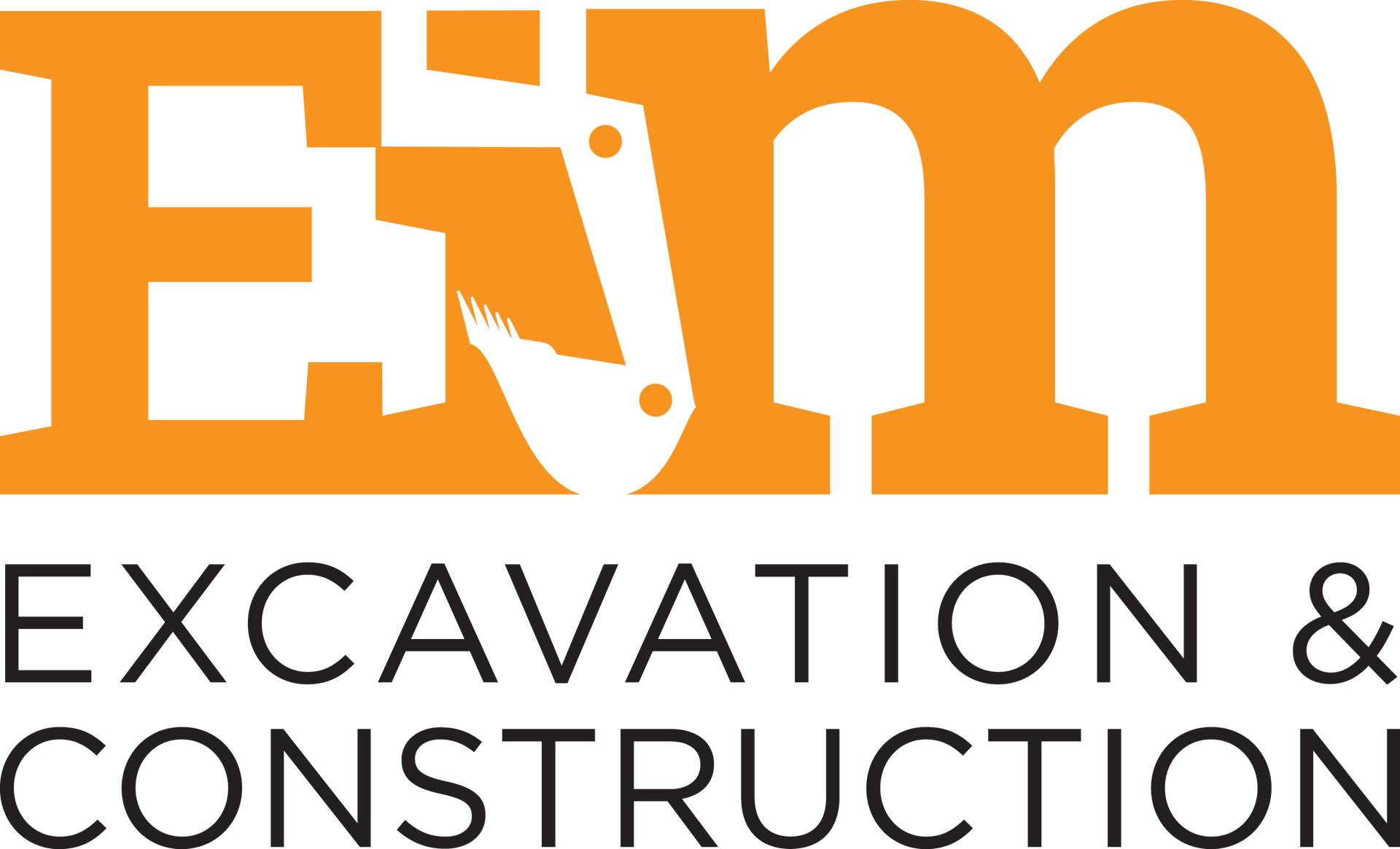Building Contractor Requirements and Regulations in Bee Cave, Texas
What You Need to Know About Working with a Building Contractor in Bee Cave
When you're looking for a building contractor in Bee Cave, you're stepping into a unique regulatory environment that demands careful attention to detail. Over my 20 years in construction and as the founder of Earth in Motion, Inc., I've learned that successful projects in this Texas Hill Country community require more than just construction expertise. You need a contractor who understands the local landscape, both literally and figuratively.
Bee Cave isn't just another suburb of Austin. This community has established specific requirements that protect property values and ensure safety for everyone. When I work with clients in Bee Cave, I always start by explaining that their success depends on choosing someone who respects these local standards and can navigate them efficiently.
The truth is, many contractors overlook the critical administrative steps that make or break a project in Bee Cave. They focus on the construction work itself but miss the regulatory foundation that everything else builds upon. That's where my military background and decades of problem-solving experience become invaluable for my clients.
Understanding Bee Cave's Contractor Registration Requirements
Every legitimate contractor operating in Bee Cave must complete an annual registration process with the city. This isn't optional or something you can skip. The city requires this registration before any building permits can be issued, and I've seen projects come to a complete halt when contractors try to cut corners on this requirement.
Here's what the registration process involves:
- Valid driver's license verification- Basic identification that proves you are who you say you are
- Professional licensing documentation- Specialized licenses for electrical, plumbing, or mechanical work when applicable
- Certificate of liability insurance- Protection for both the contractor and the property owner
- Completed W-9 tax form- Standard business documentation
- Annual registration fee- Currently fifty dollars, a small investment in legitimacy
When I register Earth in Motion with Bee Cave each year, I use their online platform called My Government Online. The whole process takes about three business days once I submit everything correctly. The city emails me a PDF certificate with a registration number that I keep on file for all permit applications.
This system exists because Bee Cave takes construction safety seriously. They want to ensure that everyone working on projects in their community meets basic professional standards. As someone who's built custom ponds and handled complex site work across Texas and Colorado, I appreciate this approach. It weeds out fly-by-night operators who might cut corners on safety or quality.
Why Registration Matters for Your Project
You might wonder why contractor registration should matter to you as a property owner. The answer is simple: protection. When you hire a registered contractor, you know that person has met minimum insurance requirements and submitted to city oversight. If something goes wrong during your project, you have recourse through official channels.
I've seen too many situations where property owners hired unregistered contractors and ended up stuck with substandard work, safety violations, or incomplete projects. The contractor disappeared, and the property owner had no legal protection. That's not a risk worth taking, especially in a community like Bee Cave where property values are significant.
Navigating Building Permits and Code Compliance
Building permits in Bee Cave cover almost every type of construction work you can imagine. The city's Planning and Development Department manages this process, and they take their responsibility for life safety and code compliance seriously. Over the years, I've learned that understanding these requirements upfront prevents delays and cost overruns later.
Most construction projects require permits, but there are some exceptions. Minor landscaping work and residential interior painting typically don't need permits. However, non-residential painting projects do require site permits, which catches some contractors off guard. When I'm planning a project that includes any exterior work, I always assume permits will be necessary and plan accordingly.
The permit application process happens through the same online system used for contractor registration. I submit applications with detailed plans and specifications, then wait for approval before starting work. The city typically processes applications efficiently, but rushing this step or submitting incomplete documentation creates unnecessary delays.
Inspection Scheduling and Compliance
Once construction begins, Bee Cave requires inspections at various stages of the project. These aren't optional checkpoints that you can skip if you're running behind schedule. The city uses these inspections to verify that work meets applicable building codes and safety standards.
I schedule inspections through the online portal, making sure to give the city adequate notice. Failed inspections result in additional fees and project delays, so I always double-check my work before calling for an inspection. In my experience, being thorough during construction prevents problems during inspections.
The inspection process serves everyone's interests. Property owners get assurance that their project meets professional standards. The city maintains oversight over construction quality. And contractors like me get verification that our work complies with local codes.
Working with Homeowners Associations and Deed Restrictions
Many properties in Bee Cave fall under homeowners association governance or deed restrictions that impose additional requirements beyond city permits. This creates an extra layer of complexity that experienced contractors must navigate carefully.
City permits don't override HOA requirements or deed restrictions. Both sets of rules apply simultaneously, and your contractor needs to understand this relationship. I've worked on projects where HOA approval took longer than city permitting, so I always advise clients to start both processes early.
When I evaluate a potential project in Bee Cave, I ask about HOA requirements during our initial consultation. Some associations have architectural review committees that must approve construction plans. Others have restrictions on materials, colors, or construction hours. Understanding these limitations upfront helps me plan projects that won't encounter unexpected roadblocks.
Coordinating Multiple Approval Processes
Successfully managing projects with both city and HOA requirements requires careful coordination and clear communication. I maintain separate files for city permits and HOA approvals, tracking the progress of each process independently. This approach prevents confusion and ensures that nothing falls through the cracks.
My military background taught me the importance of systematic approaches to complex situations. When dealing with multiple approval processes, I create checklists and timelines that account for both city and HOA requirements. This methodology has helped me complete projects on schedule even when facing complex regulatory environments.
Evaluating Contractor Qualifications and Insurance
Beyond registration and permitting, you need to verify that your contractor carries appropriate insurance coverage and maintains professional standards. This verification process protects you from liability and ensures that you're working with someone who takes their business seriously.
Liability insurance is mandatory for contractor registration in Bee Cave, but the specific coverage amounts and terms vary. When I meet with potential clients, I provide current insurance certificates that clearly show coverage details. This documentation should list the property owner as an additional insured party for the duration of the project.
Professional licensing requirements depend on the type of work being performed. Electrical, plumbing, and mechanical contractors need specialized licenses beyond basic contractor registration. Even though I handle many types of construction work, I partner with licensed specialists when projects require their expertise.
References and Portfolio Evaluation
Any contractor worth hiring should provide references from recent projects and examples of similar work. I maintain a portfolio of completed projects that shows the range and quality of my construction capabilities. When potential clients ask about my experience with custom ponds or site work in challenging terrain, I can point to specific examples.
Don't hesitate to contact references and ask detailed questions about their experience. How did the contractor handle unexpected challenges? Did they complete the project on schedule and within budget? Would they hire the same contractor again? These conversations provide insights that you can't get from marketing materials or initial meetings.
Understanding Project Costs and Pricing Structures
Construction pricing in Bee Cave reflects several factors that influence your total project cost. The complexity of local permitting requirements, material availability, site conditions, and project scope all play roles in determining final pricing. Rather than focusing on specific dollar amounts, you should understand how these factors affect your investment.
Site conditions significantly impact construction costs in the Texas Hill Country. Rocky terrain, slopes, drainage issues, and access limitations all require specialized approaches and equipment. When I'm building custom ponds or handling excavation work, I always conduct thorough site evaluations before providing pricing estimates.
Material costs fluctuate based on market conditions, supplier availability, and project specifications. Quality materials cost more upfront but provide better long-term value through durability and performance. I always discuss material options with clients, explaining how different choices affect both initial costs and long-term maintenance requirements.
Payment Structures and Change Order Management
Professional contractors use structured payment schedules that align with project milestones rather than demanding large upfront payments. I typically structure payments around permit approval, project start, completion of major phases, and final completion. This approach protects both the contractor and the property owner by ensuring that payments correspond to completed work.
Change orders are inevitable in most construction projects, especially when dealing with site conditions or client preferences that evolve during construction. I document all changes in writing, including cost implications and schedule impacts. This transparency prevents disputes and ensures that everyone understands how changes affect the project.
Unexpected site conditions, permit delays, or weather events can impact project timelines and costs. Experienced contractors build contingencies into their planning and communicate regularly with clients about potential issues. My approach emphasizes proactive problem-solving rather than reactive crisis management.
Communication and Project Management Excellence
Effective communication separates professional contractors from those who create frustration and disappointment. Throughout my career, I've learned that clients value regular updates, clear explanations, and honest assessments more than anything else. When challenges arise, and they always do, transparent communication helps maintain trust and find solutions.
I provide regular project updates that include progress photos, schedule information, and upcoming milestones. This approach keeps clients informed without overwhelming them with unnecessary details. When issues arise that might affect timelines or costs, I communicate immediately rather than waiting until problems become crises.
Project coordination involves managing multiple subcontractors, material deliveries, inspections, and client communications simultaneously. My military background provides the organizational skills necessary to keep complex projects moving forward efficiently. I use project management systems that track all aspects of construction progress and identify potential bottlenecks before they cause delays.
Problem-Solving and Adaptability
Every construction project presents unique challenges that require creative problem-solving and adaptability. Site conditions that don't match initial surveys, material delivery delays, weather complications, or unexpected utility conflicts all demand flexible responses. My experience across different environments, from Colorado's mountain terrain to Texas Hill Country, has taught me to anticipate challenges and develop contingency plans.
When I encounter unexpected site conditions during pond construction or excavation work, I stop work immediately and assess the situation thoroughly. Rather than pushing forward and potentially creating bigger problems, I communicate with the client about options and implications. This approach might slow initial progress, but it prevents costly mistakes and ensures optimal long-term results.
Choosing the Right Building Contractor for Your Bee Cave Project
Your choice of contractor will determine whether your project becomes a source of pride or a source of frustration. The regulatory environment in Bee Cave demands someone who understands local requirements and can navigate them efficiently. But technical competence alone isn't enough. You need someone who communicates clearly, solves problems proactively, and stands behind their work.
When evaluating potential contractors, look for evidence of systematic approaches to project management, clear communication skills, and genuine commitment to quality outcomes. Ask about their experience with similar projects, their approach to unexpected challenges, and their methods for keeping clients informed throughout the construction process.
At Earth in Motion, I bring two decades of construction experience, military-trained problem-solving skills, and a genuine passion for creating solutions that work in challenging environments. Whether you're planning a custom pond installation, site development work, or other construction projects, I approach each opportunity with the same commitment to excellence that has guided my career.
The key to success in Bee Cave construction projects lies in choosing a qualified, registered, and experienced professional who understands both the technical and regulatory aspects of local construction. When you work with the right building contractor in Bee Cave, your project becomes an investment in long-term value rather than a source of ongoing problems.
What registration requirements must a building contractor meet to work in Bee Cave?
Every building contractor operating in Bee Cave must complete annual registration with the city before receiving building permits. At Earth in Motion, I ensure this process is handled properly each year, submitting my driver's license verification, professional licensing documentation, certificate of liability insurance, completed W-9 tax form, and the annual registration fee through the city's My Government Online platform. This registration typically takes three business days to process, and I maintain the PDF certificate with registration number for all permit applications. This requirement exists to protect property owners by ensuring contractors meet basic professional standards and insurance requirements.
How do building permits and inspections work for construction projects in Bee Cave?
Most construction projects in Bee Cave require permits through the Planning and Development Department, with exceptions for minor landscaping and residential interior painting. I handle the entire permit application process through the online system, submitting detailed plans and specifications before starting any work. Throughout construction, the city requires inspections at various stages to verify code compliance and safety standards. I schedule these inspections with adequate notice and ensure my work is thoroughly completed before calling for inspection, preventing failed inspections that result in additional fees and project delays.
What factors influence the cost of construction projects in the Texas Hill Country?
Construction pricing in Bee Cave reflects several key factors that I evaluate during initial site assessments. Site conditions significantly impact costs, as rocky terrain, slopes, drainage issues, and access limitations require specialized approaches and equipment - challenges I've mastered through decades of experience in both Texas Hill Country and Colorado's mountain terrain. Material costs fluctuate based on market conditions and project specifications, though I always discuss how different quality choices affect both initial investment and long-term maintenance requirements. Project complexity, permitting requirements, and scope all influence final pricing, which is why I conduct thorough evaluations before providing estimates.
How do you handle HOA requirements and deed restrictions in addition to city permits?
Many Bee Cave properties fall under homeowners association governance or deed restrictions that create additional requirements beyond city permits. At Earth in Motion, I address this complexity by asking about HOA requirements during initial consultations and maintaining separate tracking for city permits and HOA approvals. Since city permits don't override HOA requirements, both processes must run simultaneously. I create detailed checklists and timelines that account for architectural review committees, material restrictions, color limitations, and construction hour requirements, ensuring projects don't encounter unexpected roadblocks during construction.
What should I expect regarding communication and project management during construction?
Effective communication and systematic project management separate professional contractors from those who create frustration. I provide regular project updates including progress photos, schedule information, and upcoming milestones to keep clients informed without overwhelming them with unnecessary details. When challenges arise - whether from unexpected site conditions, material delivery delays, or weather complications - I communicate immediately rather than waiting until problems become crises. My military background provides the organizational skills necessary to coordinate multiple subcontractors, material deliveries, inspections, and client communications simultaneously, using project management systems that identify potential bottlenecks before they cause delays.



